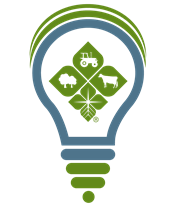September 12, 2022
9 Numbers to Manage your Dairy Operation

Managing a successful dairy farm means managing a lot of information. One of the things we work with clients on is collecting numbers from your farm, comparing those metrics to industry aggregates, and helping producers understand what that comparison means. Below are nine numbers we talk to our consulting clients about.
1. Cost of Production
This is key. It seems like when I ask someone what their cost of production is, they always say, “$18 per cwt.” — no matter how many cows they milk. That’s my clue they don’t know precisely what it is.
Knowing cost of production is critical for short-term and long-term planning, budgeting, and risk management. The top 20 farms in Farm Credit East’s Large Dairy Benchmark group had a net cost of production in 2021 of $18.56/cwt. Farms using Farm Credit East’s Dairy Profit Analyzer tool had an average net cost of production through June 2022 of $20.60/cwt. How much has your net cost of production changed in the first six months of 2022?
2. EBITDA per Cow
EBITDA — Earnings Before Interest, Depreciation, Taxes and Amortization — is a measure of total farm profitability without the influence of debt load. Our Dairy Profit Analyzer group had an average EBITDA/cow of $1,135 through June.
3. Non-Milk Income
You know milk margins are tight. Supplemental income sets the top herds apart. The 20 most profitable farms in the Large Dairy Benchmark group had non-milk income of $308/cow. They didn’t make the most milk per cow, but they made the most money. Are you getting all the income you can out of your farm?
4. Value of Your Milk Income
This isn’t new. Components pay, but don’t chase them at the cost of profitability. And don’t overlook other payments like quality bonus. Are you close to a higher quality tier? Can you get there without too much more spending?
5. Crop Costs
Use soil tests, target fertilizer applications, and prioritize fields by quality and yields. Top 20 farms in the 2021 Large Dairy Benchmark group had a crop cost of $247/acre. Those costs will be higher this year, but you need to know your costs and then you need a good comparison number.
6. Haylage Quality
Maximize the value of the feed you grow, keeping yield and digestibility in mind. Your nutritionist or crop consultant can help analyze your crops. Top 20 farms in the Large Dairy Benchmark had a 17% first cut crude protein.
7. Percent Pregnant by 150 Days in Milk
Reproduction drives everything on the farm. Pregnancy rate at 150 days in milk is a firm measurement. Our top 20 farms had a rate of 78%. Are you carrying cows that are less productive than they could be?
8. Heifer Inventory
Do you have more heifers than you need? Are you keeping animals longer than you should? Often heifer inventory is a people challenge as well as an animal challenge. The person in charge of calves may not be making objective decisions. In the 2021 Large Dairy Benchmark group, the top 20 had a heifer inventory of 80%, heifers to mature animals.
9. Cull Rate
This tells us whether you are keeping too many animals. Are you keeping animals you wouldn’t if you had enough? Top 20 farms had a cull rate of 35%.
The takeaway: Do you understand your farm’s numbers and how they compare?
Look at your farm's numbers and compare to these. Keep in mind, these are numbers to help you gauge where your farm is at, not a number to give yourself a good or bad grade.
Today's Harvest was contributed by Denise Russo, Regional Insurance Manager, Farm Credit East
If you'd like to learn more or would like to have help digging into these numbers on your dairy, reach out to a Farm Credit East consultant.




